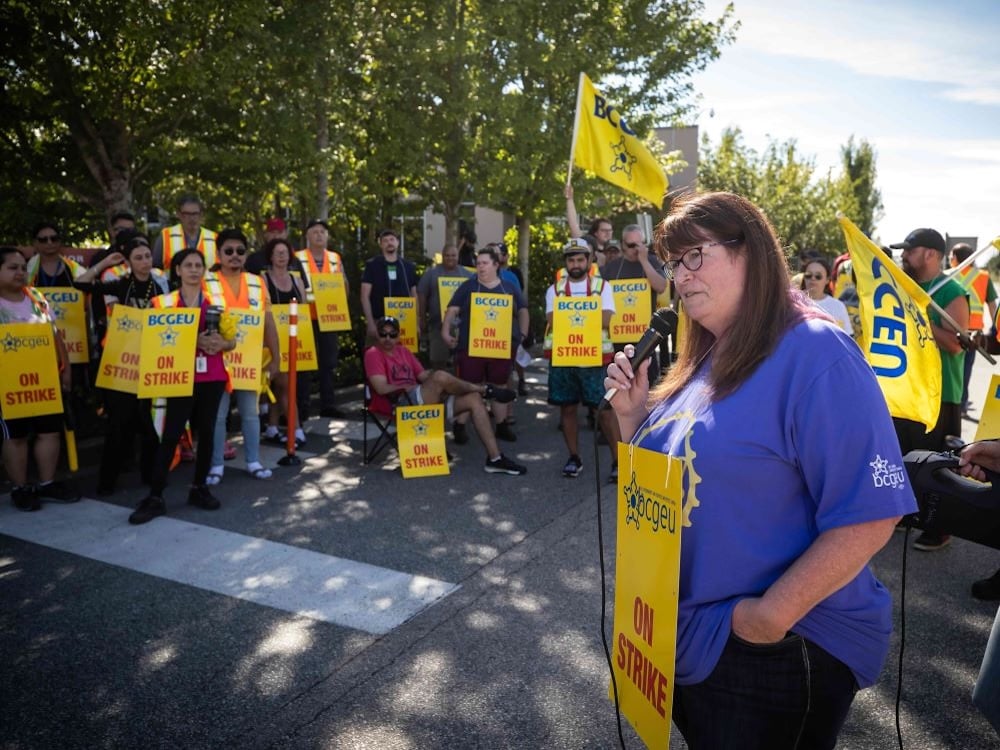Politics
Unions Face Division as BC Public Sector Negotiations Intensify

Negotiations within British Columbia’s public sector have become increasingly contentious as divisions among unions emerge. The British Columbia Government and Service Employees’ Union (BCGEU) has raised the possibility of a strike, potentially jeopardizing essential public services. This development comes on the heels of a recently negotiated agreement between the Hospital Employees’ Union (HEU) and the provincial government, which may diminish the urgency behind the BCGEU’s threats.
The HEU finalized a deal in September 2023 that includes pay increases and improved working conditions for its members. This successful negotiation has sparked debate within the BCGEU, with some members questioning the necessity of a strike when a favorable agreement is already in place for another union. The dynamics between these unions highlight the complexities of collective bargaining in the public sector, particularly as various groups seek to secure their interests.
The BCGEU’s leadership has expressed frustration over the HEU’s agreement, suggesting it undermines their bargaining position. Union officials argue that the provincial government is more willing to negotiate with unions that demonstrate unity. In contrast, the HEU’s deal could be perceived as a separate success story, potentially leaving the BCGEU at a disadvantage in negotiations.
As negotiations unfold, the implications for public sector workers and the services they provide remain significant. The BCGEU represents tens of thousands of employees across various sectors, including healthcare, education, and public administration. Any disruption caused by a strike could have widespread effects, particularly in healthcare facilities where staffing levels are critical.
While the BCGEU is determined to advocate for better wages and working conditions, the organization must also navigate the challenges posed by the HEU’s recent agreement. The provincial government has emphasized its commitment to reasonable negotiations, but the presence of competing union interests complicates the landscape.
In light of these developments, it remains to be seen how the BCGEU will proceed. Union leadership is expected to hold discussions with members to gauge support for potential strike actions. The outcome of these negotiations will not only affect the BCGEU and its members but could also set a precedent for future public sector negotiations across British Columbia.
As this situation evolves, the focus will remain on the unions’ ability to maintain solidarity and effectively advocate for their members’ rights. The next steps in these negotiations will be closely monitored by both public sector workers and the provincial government as they seek to find common ground in a challenging economic environment.
-

 Politics4 weeks ago
Politics4 weeks agoSecwepemc First Nation Seeks Aboriginal Title Over Kamloops Area
-

 World5 months ago
World5 months agoScientists Unearth Ancient Antarctic Ice to Unlock Climate Secrets
-

 Entertainment5 months ago
Entertainment5 months agoTrump and McCormick to Announce $70 Billion Energy Investments
-

 Science5 months ago
Science5 months agoFour Astronauts Return to Earth After International Space Station Mission
-

 Lifestyle5 months ago
Lifestyle5 months agoTransLink Launches Food Truck Program to Boost Revenue in Vancouver
-

 Technology3 months ago
Technology3 months agoApple Notes Enhances Functionality with Markdown Support in macOS 26
-

 Lifestyle3 months ago
Lifestyle3 months agoManitoba’s Burger Champion Shines Again Amid Dining Innovations
-

 Top Stories2 months ago
Top Stories2 months agoUrgent Update: Fatal Crash on Highway 99 Claims Life of Pitt Meadows Man
-

 Politics4 months ago
Politics4 months agoUkrainian Tennis Star Elina Svitolina Faces Death Threats Online
-

 Sports5 months ago
Sports5 months agoSearch Underway for Missing Hunter Amid Hokkaido Bear Emergency
-

 Politics5 months ago
Politics5 months agoCarney Engages First Nations Leaders at Development Law Summit
-

 Technology5 months ago
Technology5 months agoFrosthaven Launches Early Access on July 31, 2025





















